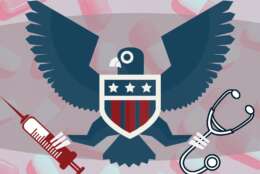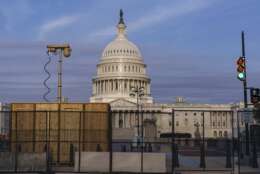Pay & Benefits
-
Employees and retirees enrolled in the Federal Employees Health Benefits Program (FEHBP) will pay, on average, 3.8% more toward their premiums in 2022. The Office of Personnel Management announced FEHBP premium rates ahead of the upcoming open season, which runs Nov. 8 through Dec. 13.
September 29, 2021 -
Some troops could get as much as a 20% hike. The benefits would last from Oct. 1 to the end of the year.
September 27, 2021 -
The government shutdown deadline is right around the corner. The good news? Congress has learned a few things from the last shutdown, bringing the tiniest bit of certainty to feds with their back pay and health insurance the next time it happens again.
September 27, 2021 -
Currently, most feds in retirement left under the CSRS program so they get full COLAs. But the overwhelming majority of people working for Uncle Sam now are under the FERS program.
September 21, 2021 -
For somebody with a long retirement horizon ahead of them, deferring Social Security until age 70 could boost their benefit 68%. Tough call. But one worth considering very carefully.
September 09, 2021 -
If the 2022 mid-term elections are as energized as some experts predict, it could produce a Congress that might repeal or modify two 1980s laws.
September 07, 2021 -
If they made a movie about a government janitor who legally became a millionaire, would you see it? Would you believe it?
August 17, 2021 -
While some welcome regular reports on the TSP and its stakeholders, many are concerned that Congress may take issue with the idea of millionaire bureaucrats.
August 12, 2021 -
Once again, there are dueling agendas to eliminate or offset the Windfall Elimination Provision, a pesky nuance that reduces Social Security benefits for some federal retirees.
August 09, 2021 -
Some military families may not be eligible for SNAP because of the housing allowance they receive.
July 28, 2021 -
Should you treat Social Security like insurance or like an investment? Your answer may affect how much money you collect.
July 27, 2021 -
DoD's Transition Assistance Program aims to prepare service members for life outside the military. But for members whose final duty station is small or rural, the benefits of TAP are fairly limited.
July 26, 2021 -
January 2022's cost of living adjustment for federal retirees will depend on not only their plan, but also inflation.
July 22, 2021 -
A handful of strategies exist for TSP investors when the stock market expects to see a sharp decline.
July 21, 2021 -
The Comprehensive Paid Leave for Federal Employees Act expands paid time off to all federal workers, allowing them up to 12 weeks to recover from a personal illness or care for a sick parent or family member.
July 20, 2021














